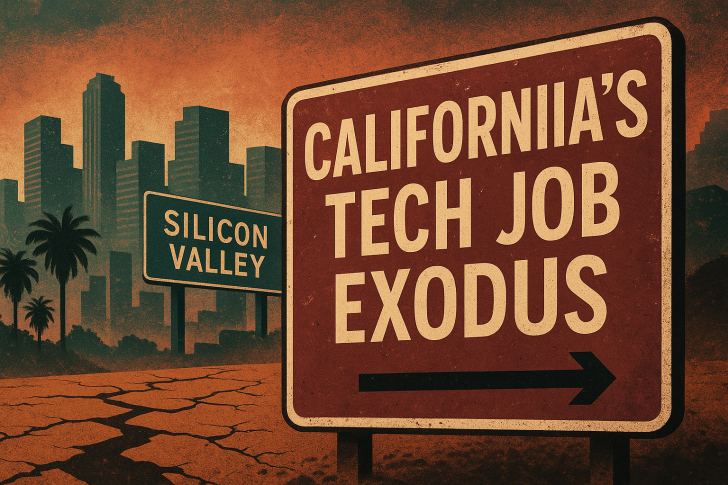California has long been synonymous with American technology. For decades, Silicon Valley represented not just a place but an era—one where ambitious engineers and entrepreneurs converged to build the digital future. But that dominance is fading. Recent employment data reveals a striking reality: California's share of U.S. tech jobs has been declining steadily since 2020, marking the state's most significant workforce contraction since the dot-com crash.
The Numbers Tell a Clear Story
In a recent post, JosephPolitano, an independent economic analyst known for detailed macro data visualizations, highlighted this trend through compelling charts. His analysis shows that California's portion of total U.S. tech employment, which peaked near 19%, has dropped below 16.5% in 2025. This isn't a temporary blip—it's a sustained migration of talent and opportunity away from the state that invented modern tech culture.
Between 2010 and 2020, California rode high on the success of Silicon Valley giants like Google, Apple, and Meta. But something fundamental changed after 2020. The data shows a continuous downward trajectory. Even as overall U.S. tech employment expanded during the AI boom, California captured less and less of that growth.
San Francisco and San Jose rank among the world's most expensive cities, where six-figure salaries barely cover rent. The pandemic accelerated remote work, demolishing the assumption that you had to be in the Bay Area for top opportunities. Suddenly, engineers in Austin or Denver could access the same jobs without crushing costs.
Other states noticed. Texas, Florida, and North Carolina courted tech companies with lower taxes and business-friendly policies. The AI boom reinforced this shift—building massive data centers requires cheap land and abundant energy, resources California increasingly lacks.
A Redistribution, Not a Collapse
California's tech industry hasn't collapsed—it's being redistributed. Silicon Valley's monopoly is giving way to thriving ecosystems in Austin, Miami, Denver, and Seattle. This geographic diversification might strengthen American technology by spreading opportunity more broadly. We're witnessing the post-Silicon Valley era, characterized by location flexibility and a truly national innovation landscape.
The irony: this migration happens during the biggest tech investment cycle in decades. Companies are spending record amounts on AI infrastructure, yet much of this buildout occurs outside California. Google, Microsoft, and Amazon rapidly expand in Virginia, Texas, and Oregon while consolidating their California operations. The state that pioneered AI is watching its infrastructure get built elsewhere.
California retains formidable advantages—Stanford and Berkeley, unmatched venture capital networks, and global brand recognition. But maintaining leadership requires addressing the cost challenges driving people away. The question isn't whether California will remain important—it will. The question is whether it can adapt quickly enough to prevent further erosion, or whether the future of American technology will be written primarily elsewhere.
 Peter Smith
Peter Smith

 Peter Smith
Peter Smith


